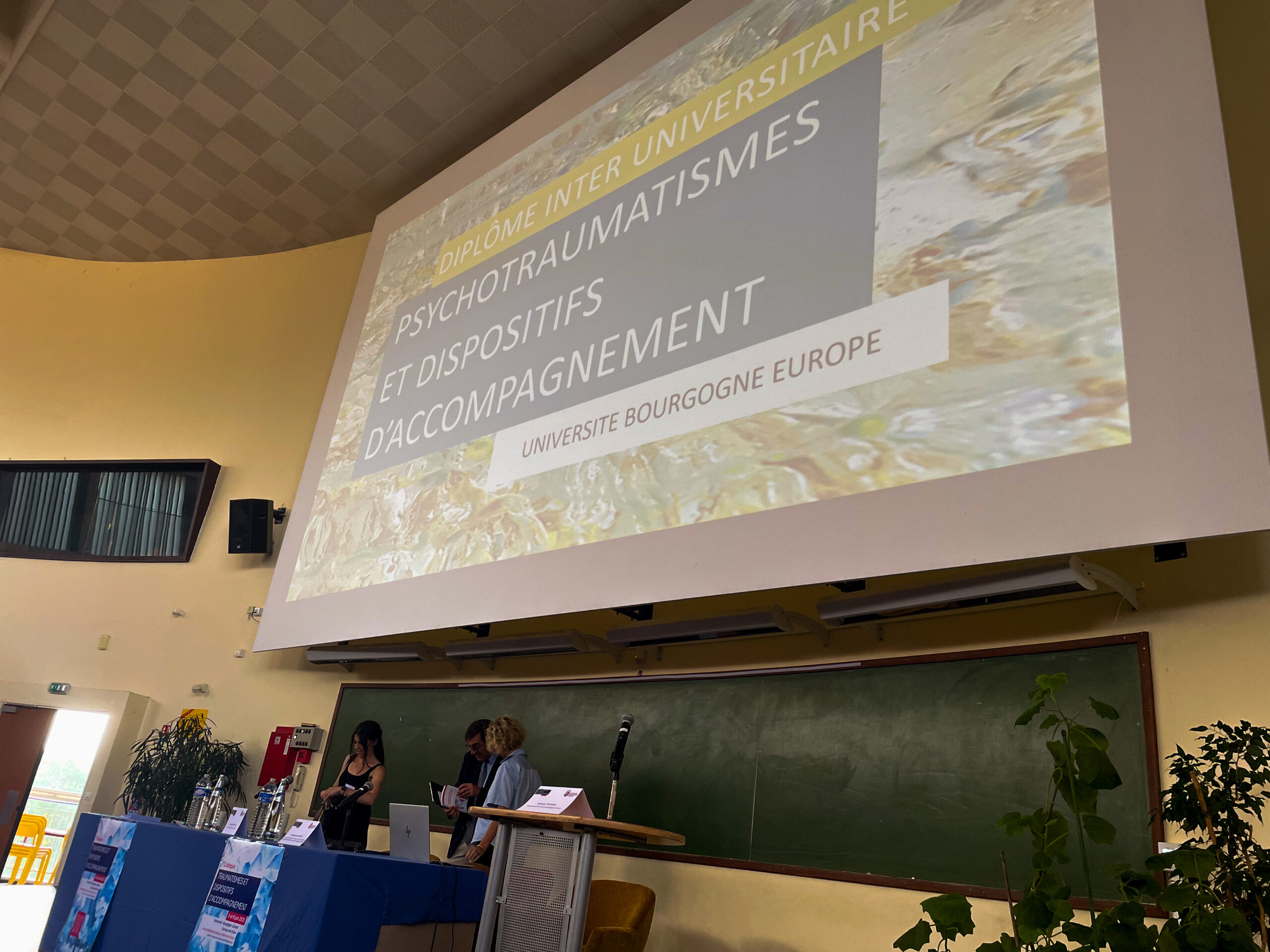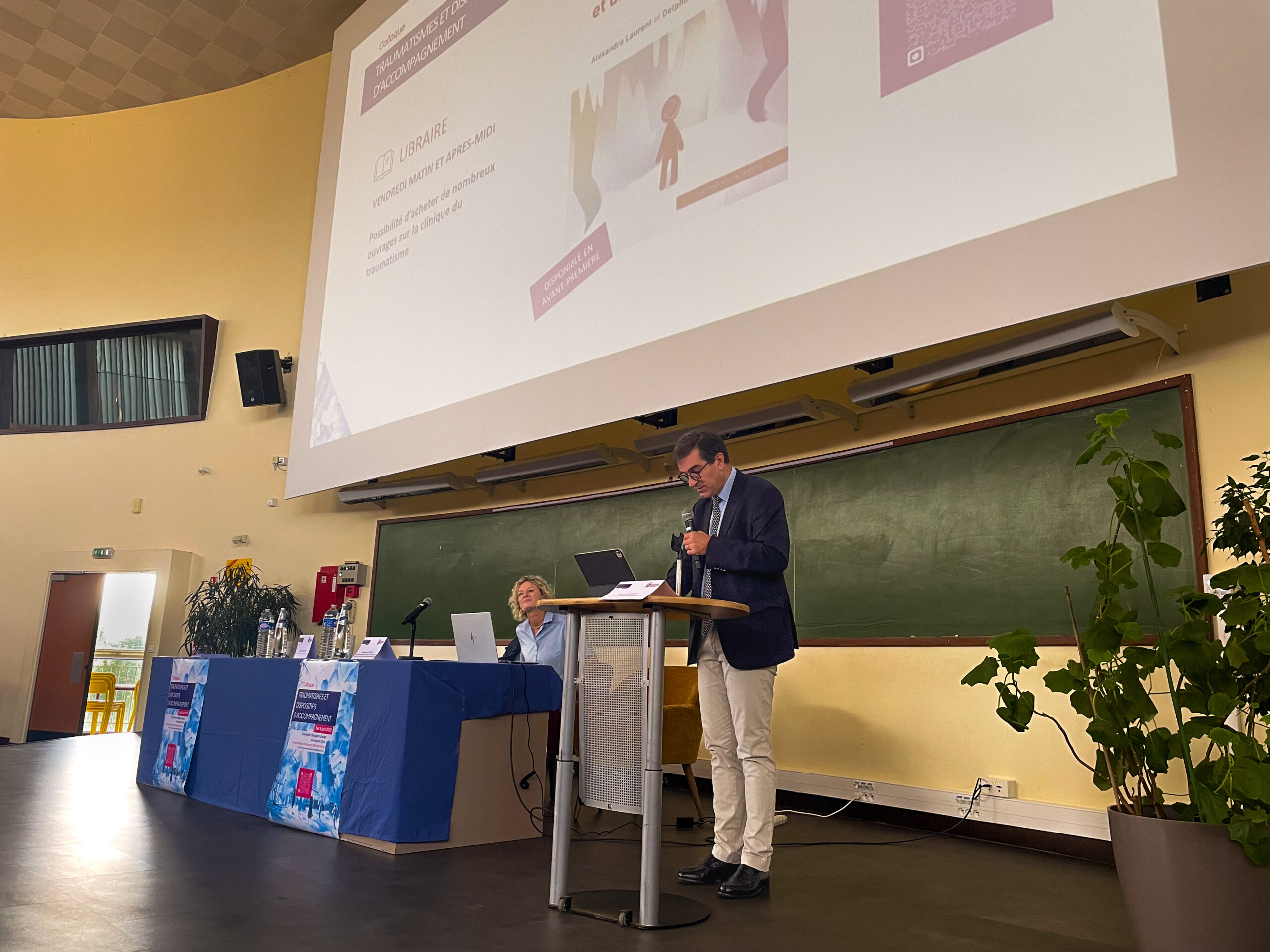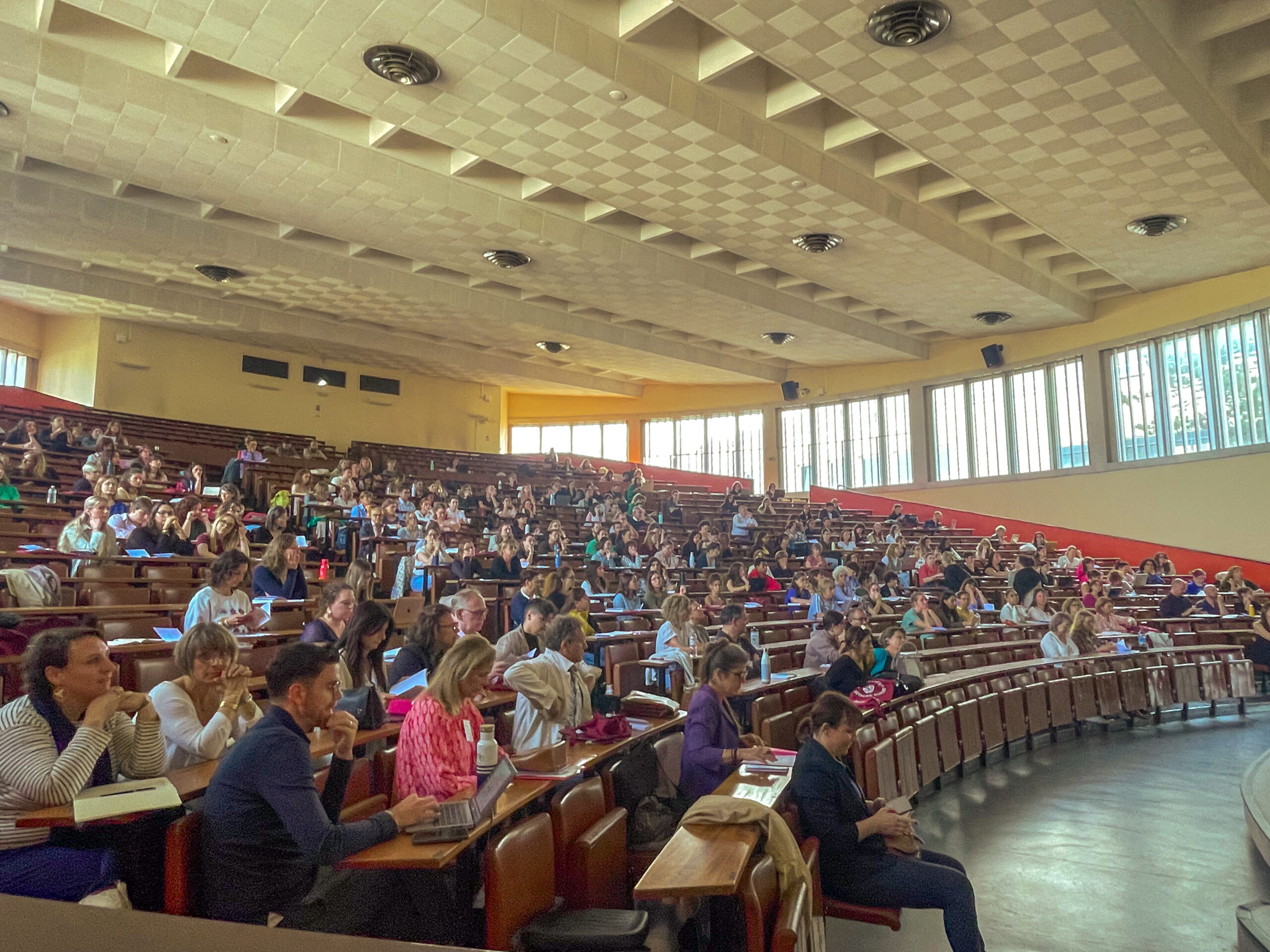A look back at the “Trauma and support systems” conference

On 27 and 28 June, 450 people attended the ‘Trauma and support systems’ conference held at Université Bourgogne Europe. The conference was devoted to the issue of psychotrauma at all stages of life and the support and assessment systems that can be deployed by mental health care professionals.
The aim of these two days was to bring together psychologists, psychiatrists, nurses, educators and, more broadly, all healthcare professionals dealing with the clinical aspects of trauma. The first objective was to take stock of the current theoretical understanding of the concept of psychological trauma and how it has evolved in relation to contemporary clinical practice. The second objective was to create a forum for discussion on clinical practice with patients suffering from trauma, whether in terms of support, assessment or therapy.
The conference was introduced by Vincent Thomas, President of UBE, Belaid Bouhemad, Head of the ARCUMEL Unit at Dijon University Hospital, and Alexandra Laurent, Professor of Clinical Psychology and Intensive Care Psychologist and member of the PSY-DREPI Laboratory. A number of activities took place over the course of the day, including plenary lectures and workshops on Thursday, followed by parallel symposia and closing lectures on Friday.
The symposium provided an opportunity to talk about trauma in the plural, and thus to highlight the specific nature of the clinic and its systems with regard to experiences in three fields:
- Violence (sexual violence, domestic violence, mass disasters, etc.)
- Precariousness (early relationships, disability, old age, family carers, unaccompanied minors, etc.)
- Illness (somatic complaints, psychiatric illnesses, pain, end of life, care relationships, etc.).
To mark the occasion, the book Traumatismes et dispositifs d’accompagnement (published by InPress) was released on the first day of the conference. This book will enable its readers to continue and enrich their thinking on the specific features of trauma clinics and psychological support systems.

